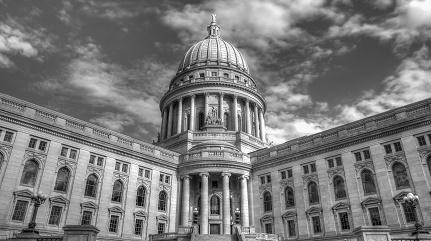A proposal to add the city’s homeless and atheists to its protected class list will hit City Council Tuesday.
According to its website, the City of Madison defines a protected class as, “a group of people defined by the law who share common characteristics and are protected from discrimination and harassment by federal, state and/or local laws.”
As one of the most vulnerable groups in society, it is vital that the homeless be protected, Georgie Nazos, The Road Home Dane County’s Housing & Hope Case Manager, said.
Madison’s homeless community faces discrimination in housing and employment, Nazos said. Potential employers often discard applicants who list no address or list job centers or shelters as their address, and landlords usually require housing applicants to have a housing history, references and their name on a previous lease. To have protections around this kind of discrimination, she said, would be great.
“We will not be able to solve the problem of homelessness when those individuals are unable to find housing or jobs; one comes from the other, it’s a vicious cycle,” Nazos said. “You can’t get a job, you can’t get housing. If people are discriminating based on that, then how do we expect to get people back on their feet?”
Adding the homeless to the protected class list would make it illegal to discriminate against the homeless just as it is illegal to discriminate against a particular race or gender, Nazos said. This is the first step toward solving the homeless crisis, she said.
Putting atheists on the protected class list will also be a significant advance in reducing discrimination in Madison, co-president of the Freedom From Religion Foundation, Annie Laurie Gaylor said.
Religion is already a protected class, but many do not realize this also includes those who choose not to practice religion, Gaylor said.
The folks who lead the Freedom From Religion Foundation are used to drawing heat. In a move opposed by liberal… http://t.co/K3C5mjLKNw
— FFRF (@FFRF) January 30, 2015
Gaylor’s Freedom from Religion Foundation, composed of atheists, skeptics and non-believers who support the separation of church and state, often face discrimination from vendors who refuse to print FFRF’s brochures and advertising, she said. Gaylor said she hopes adding atheists to the protected class list will stop this censorship of her and her organization’s views.
“Not only do you not have free speech, but you don’t have paid speech,” she said.
The foundation also receives discrimination in what Gaylor referred to as “crank mail” letters which do not threaten, but ask FFRF to move from the country.
For atheists, Gaylor said, becoming a protected class would mean a step toward changing the sometimes demonizing perception of atheists and deconstructing bizarre atheist stereotypes. Becoming a protected class would also make atheists feel safer from hate crimes, she said.
“It kind of puts you at the table,” she said. “You’re treated like a human being just like everybody else.”












